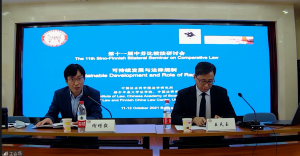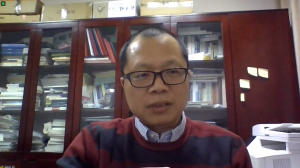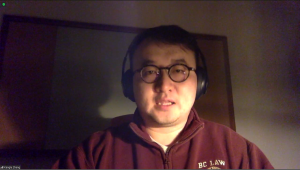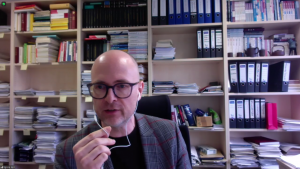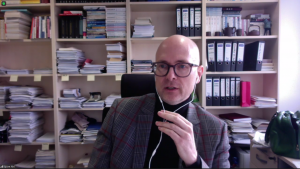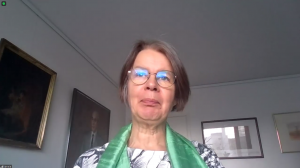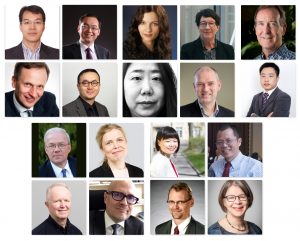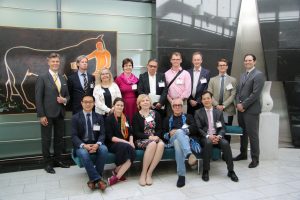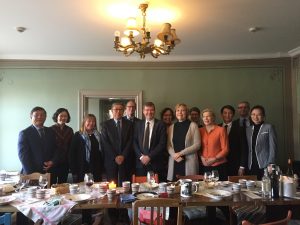On 11-12 October 2021, the China Law Center together with Faculty of Law at the University of Helsinki and the Chinese Academy of Social Sciences (CASS) organized the 11th Sino-Finnish Bilateral Seminar on Comparative Law. This year, the seminar was centered around the theme of Sustainable Development and Role of Regulation.

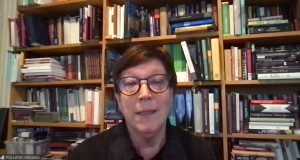
The seminar began with opening words from Professor Pia Letto-Vanamo, the Dean of the Faculty of Law and Chair of the Board of the Finnish China Law Center, and Professor Mo Jihong, Director of CASS Law Institute. Both emphasized the significance of sustainability to society and development as well as the role of the seminar as a platform to exchange knowledge and broaden the understanding of the legal systems in China, Finland and Europe and how each tackles essential and also very complex issues in sustainable development and regulation. During the opening ceremony, Professor Björn Ahl, President of the European China Law Studies Association and Visiting Professor at the University of Helsinki, shared his thoughts and experience on the challenges and opportunities of research of Chinese law in Europe.

The first session of the seminar dealt with sustainable development and role of regulation. The session began with a presentation by Associate Professor Li Xia on ‘Transformation of Regulatory Objectives and Methods in Risk Society: A Case Study of Safety Regulation in Hazardous Chemicals Industry’. Assistant Professor Lin Xiaoxiao next addressed the general clauses in the Chinese Tort Law and Civil Code on environmental tort issues, punitive compensation and responsibility for environmental damages. Next, Professor Matti Nojonen discussed a different interpretation of Chinese tradition on self, freedom and humaneness as societal process. Finally, Professor Pia Letto talked about difficulties of legal comparisons. Especially challenging is the comparison between European and non-European legal systems and institutions.
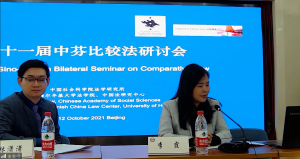

The second session covered sustainable business models and their regulation. In his presentation, Professor Zhao Lei looked into three dimensions of the revision of Chinese Corporate Law including its functions, practices, and position in coordination with other laws. Professor Jukka Mähönen gave an overview of the EU business regulation and sustainable finance initiative as tools to activise sustainable business through his presentation titled ‘Sustainability in European Union Business Regulation’. Assistant Professor Tang Linyao discussed the commercial and legal prospects of privacy-by-design, taking privacy-preserving computation regulation as an example. Lastly, Dr Heli Korkka-Knuts explored the role of behavioural regulatory design in optimization of corporate crime prevention and support of global sustainability transformation.

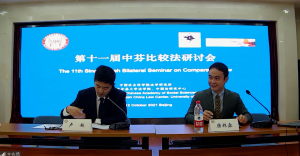

The third session focused on environment protection, rights and regulatory approaches. Professor Liu Hongyan talked about the inclusion of ecological civilization to the amendment of the Constitution and new development of environmental rule by law in China. Dr. Seita Romppanen discussed the role of law in sustainability transitions and identidied avenues for further legal research on the role of law in sustainability transitions. Next, Assistant Professor Yue Xiaohua presented the regulation path and implementation mechanism of green consumption in China while Dr. Tiina Paloniitty assessed the role of environmental law and governance as a core of sustainability law.
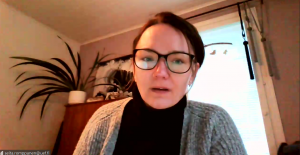


The last session of the seminar covered decent work and the protection of platform workers in China, Finland and EU. This session saw two presentations: one from Professor Ulla Liukkunen under the title ‘Fundamental Labour Rights and Platform Work – A Cross-border Perspective’ and the other from Associate Professor Wang Tianyu under the title ‘Toward the Tripartite Laws of Labor – A Chinese Solution for the Protection of
Platform Workers’ Rights and Interests’.

